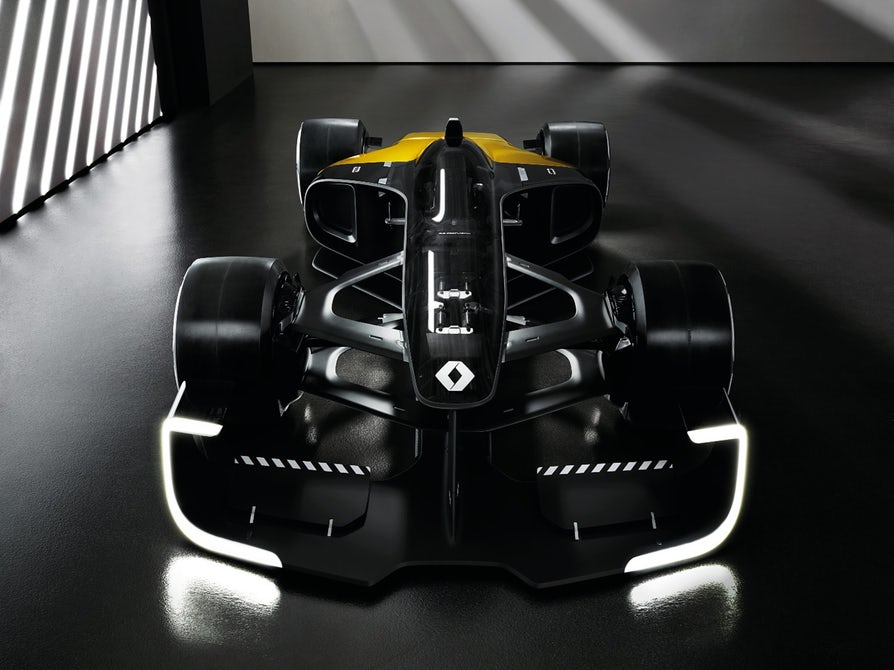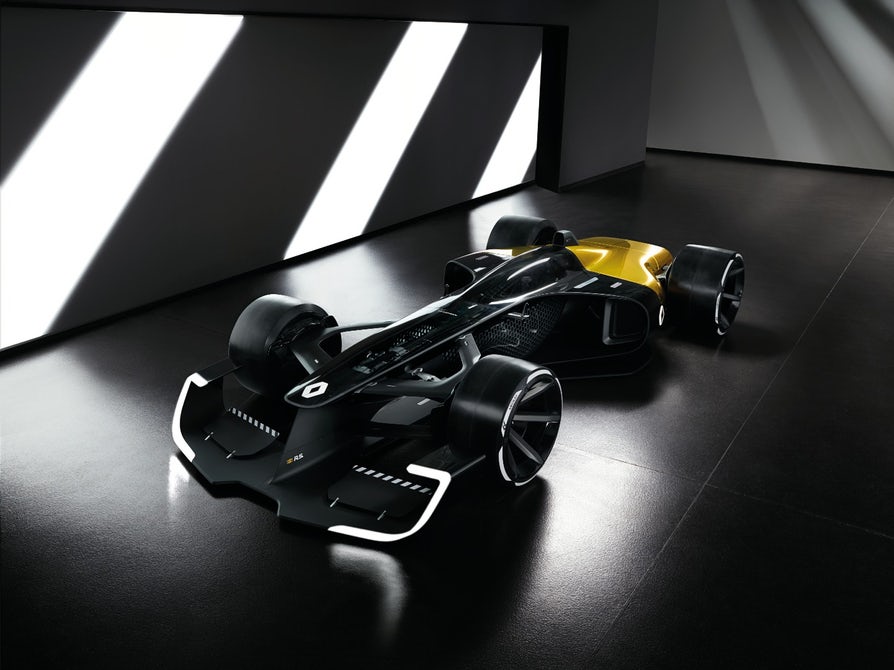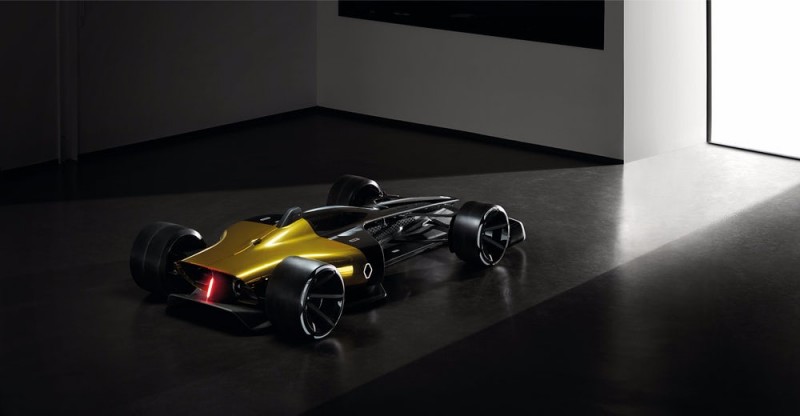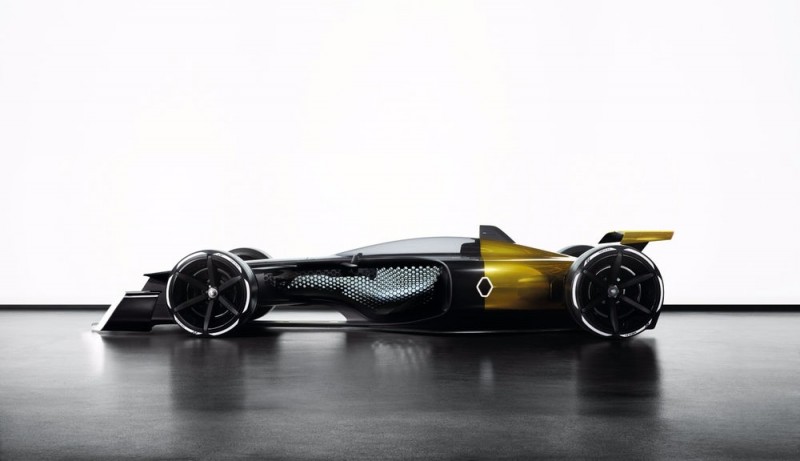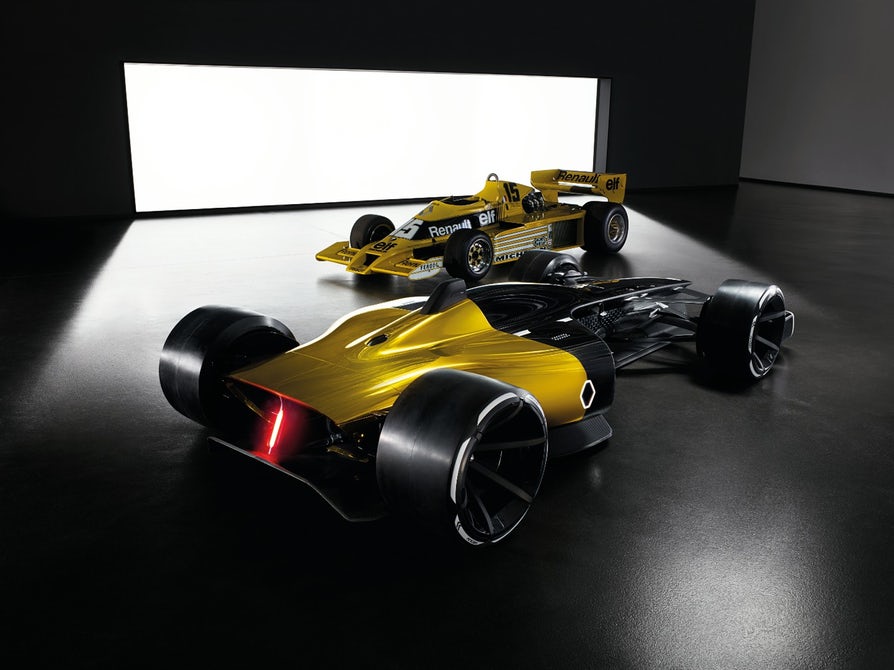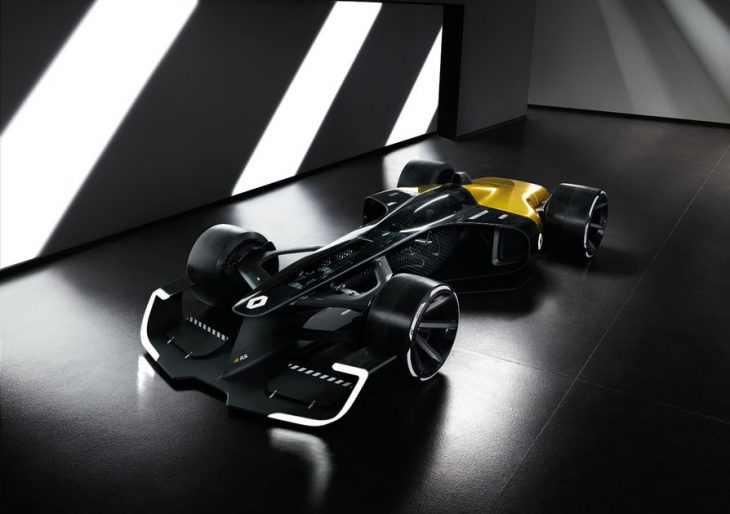Renault’s futuristic F1 concept—the R.S. 2027 Vision—turned a few heads at the Shanghai Auto Show this week. As a peek into the potential of the sport in the next decade, the Vision is illuminating.
Looking something like an exoskeleton outfitted with LED lighting, the R.S. 2027 Vision is nearly transparent. The driver of the car is encased in a large polycarbonate bubble. The LED lights haven’t been used as a sci-fi flourish, however; they’re present as a means of communication and track negotiation. They’re also used to highlight the Vision’s dramatic active aerodynamics system—compensatory wings that help maintain stability. Also assisting in keeping things on track is a four-wheel drive system augmented with four-wheel steering.
And, of course, the R.S. 2027 Vision is very fuel-efficiency conscious, and boasts a hybrid system with high-density batteries and kinetic recycling. At first look, and with its forward-looking design, you might’ve expected it to be all-electric. But its fuel demands represent about half of the requirements of contemporary F1 racers.
Renault’s concept is, of course, all part of a greater marketing vision, and the R.S. 2027 Vision is evocative of company designs being used on current Renault Group production vehicles, most notably the uniquely shaped lights on the front. And, it’s made to draw attention to the brand; the best way to do that? Potential speed, rendered in numbers. The R.S. 2027 Vision’s powertrain pushes 1,340 horsepower, and weighs only 1,320 pounds. That’s an extraordinary power-to-weight ratio.
All that power, but safer too: the car features an autonomous driving mode, that will seek safety in case of a track disaster.
